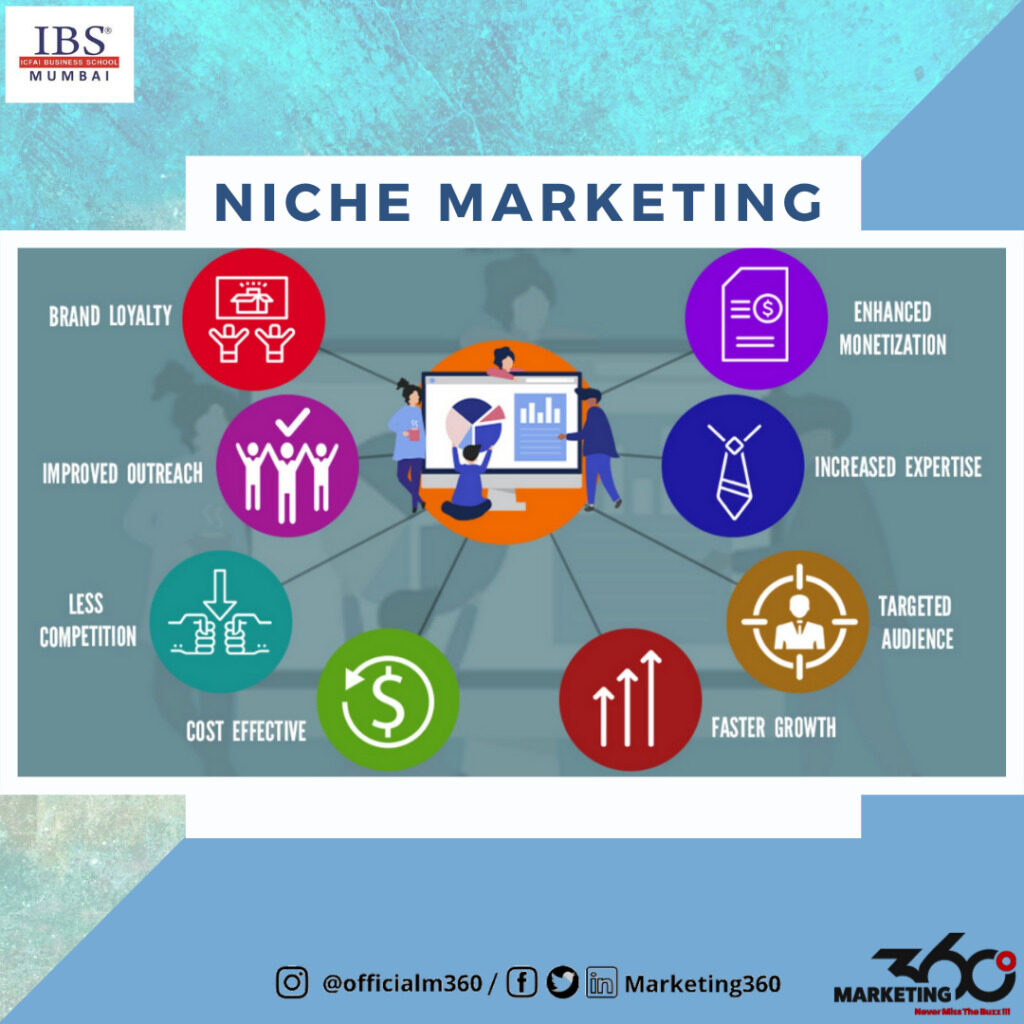Business
Niche Marketing Advantages and Disadvantages
Niche Marketing: To target or not to target, that is the question.
Published
2 years agoon

It’s simple to get lost in the crowd in the huge and dynamic world of marketing. How do you ensure that your brand stands out when there are so many companies vying for customers’ attention?
A niche marketing approach with a distinctive offering, this targeted marketing strategy aims to connect with a focused and well-defined clientele. But does it work for your company?
We’ll examine the benefits and drawbacks of niche marketing in this post to assist you in determining whether it’s worthwhile to try your hand at it.
Advantages of Niche Marketing
Laser-focused focus: By focusing on a particular audience, you can respond to their individual needs and wants, raising your conversion rate and boosting customer happiness.
Lower competition: Because there is frequently less competition in niche areas, you have a better chance to stand out and establish yourself.
Better return on investment (ROI): Compared to broad-spectrum marketing, you can more efficiently deploy your resources and achieve a greater ROI with a smaller target population.
Stronger brand identity: You may build a solid brand identity and reputation by positioning yourself as an authority in a specific field.
Disadvantages of Niche Marketing
Limited audience: The smaller the possible client base, the smaller the niche. Due to this, expanding your company and achieving the degree of success you want may be challenging.
Overly limiting your market: By concentrating on a certain niche, you risk restricting your market too much and making it challenging to grow your firm in the future.
Missing out on potential clients: By concentrating your marketing efforts on a narrow demographic, you run the risk of leaving out clients who might be interested in your goods and services but do not fall inside your target market.
Dependence on a single niche: If you place too much reliance on a single niche, you could get into difficulties if that market undergoes a slump or dries up.

Finding Your Niche: How to Know if Niche Marketing is Right for You
Examining your services is the first step in deciding whether niche marketing is appropriate for your company. Do you offer a special good or service that appeals to a particular clientele? If so, you might do well with specialty marketing.
It’s also critical to think about your objectives.
Are you trying to build a solid brand and reputation in a certain industry? Or do you want to broaden your audience and clientele? If niche marketing is the correct strategy for you, the answers to these questions can assist you in making that decision.
Making the Most of Your Niche: Tips for Successful Niche Marketing
Once you’ve determined that niche marketing is your company’s best course of action, it’s critical to successfully carry out your plan. Here are some pointers to maximize your specialty marketing efforts:
Recognize your audience: Make sure you know the wants, needs, and problems your target market is experiencing. Using this information, you can develop a marketing message that connects with them and encourages conversions.
Be an authority: Establish your authority and leadership in your industry. Your target audience will become more credible and trust you as a result.
Utilize data: Track your progress and decide wisely about your marketing strategies using data and analytics.
Don’t be scared to change: As your company expands and changes, be willing to modify your specialized marketing plan to keep current and efficient.

Conclusion
In conclusion, organizations trying to stand out in a crowded market may find niche marketing to be a useful tactic. Finding the proper balance while avoiding too restricting your market is crucial, though.
It’s critical to consider the benefits and drawbacks of any business plan before deciding whether niche marketing is the best choice for you. You now know the advantages and disadvantages of specialized marketing. Just keep in mind that not every business opportunity requires casting the biggest net. Going for the smaller catch can be profitable at times.
ALSO READ: What are the Best Options for Investing in the Circular Economy
This is Dean and he is a former banker with a passion for writing. He has Bachelor’s degree in Economics and an FCE English level certificate. Dean is an honest person looking for long-term partners and always giving clients more than they expect.

You may like
-
How Do I Request a Business Audit
-
Starting a Dog Boarding Business at Home and the Cost Included
-
Why Data Analysis is Important in Making Business Decisions
-
The Importance of Networking and Building Relationships in Business
-
The Benefits and Challenges of Expanding a Business Globally
-
The Earning Potential of Starting a Home-Based Bakery Business

Best Problem-Solving Strategies In Business

How to Start Affiliate Marketing Through Amazon

How to Plan A Wedding On A Budget

10 Reasons Why Budgeting Is Important













